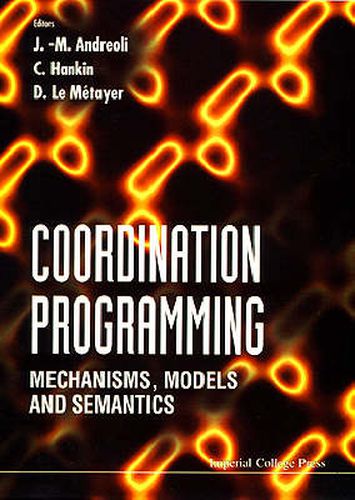Readings Newsletter
Become a Readings Member to make your shopping experience even easier.
Sign in or sign up for free!
You’re not far away from qualifying for FREE standard shipping within Australia
You’ve qualified for FREE standard shipping within Australia
The cart is loading…






Coordination, considered abtractly, is an ubiquitous notion in computer science: for example, programming languages coordinate elementary instructions; operating systems coordinate accesses to hardware resources; database transaction schedulers coordinate accesses to shared data; etc. All these situations have some common features, which can be identified at the abstract level as coordination mechanisms . This book focuses on a class of coordination models where multiple pieces of software coordinate their activities through some shared dataspace. The book has three parts. Part 1 presents the main coordination models studied in this book (Gamma, LO, Tao, LambdaN). Part 2 Focuses on various semantics aspects of coordination, applied mainly to Gamma. Part 3 presents actual implementations of coordination models and an application.
$9.00 standard shipping within Australia
FREE standard shipping within Australia for orders over $100.00
Express & International shipping calculated at checkout
Coordination, considered abtractly, is an ubiquitous notion in computer science: for example, programming languages coordinate elementary instructions; operating systems coordinate accesses to hardware resources; database transaction schedulers coordinate accesses to shared data; etc. All these situations have some common features, which can be identified at the abstract level as coordination mechanisms . This book focuses on a class of coordination models where multiple pieces of software coordinate their activities through some shared dataspace. The book has three parts. Part 1 presents the main coordination models studied in this book (Gamma, LO, Tao, LambdaN). Part 2 Focuses on various semantics aspects of coordination, applied mainly to Gamma. Part 3 presents actual implementations of coordination models and an application.